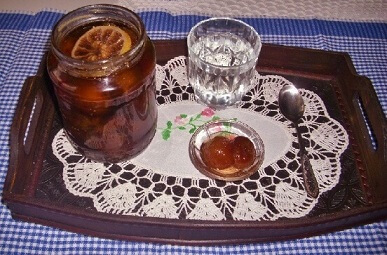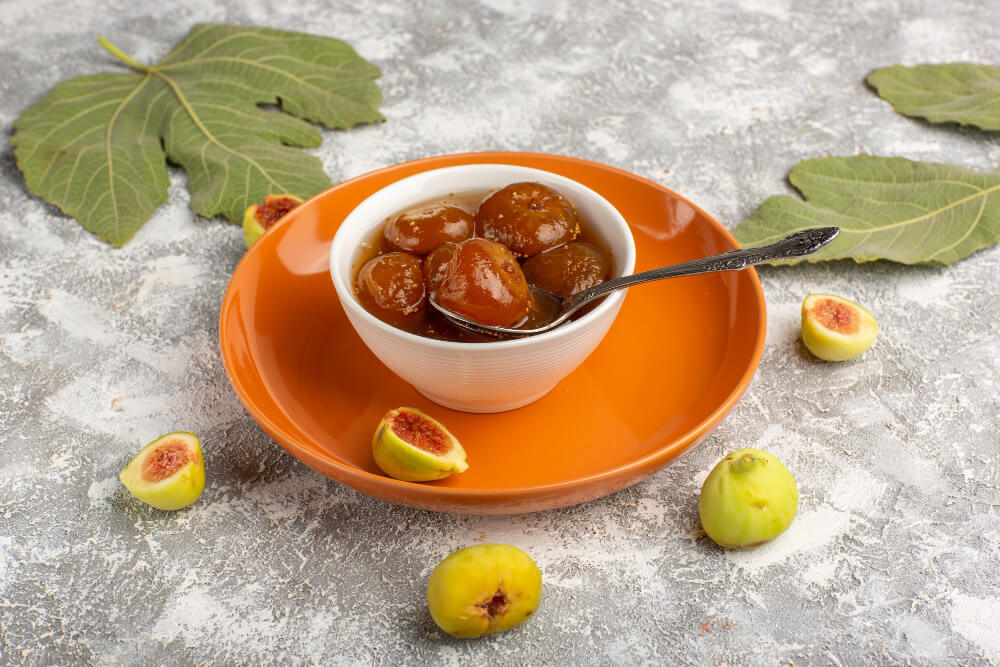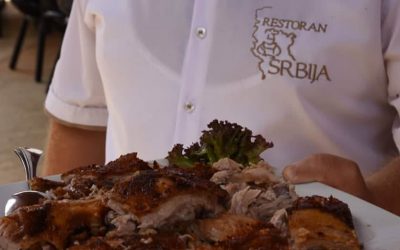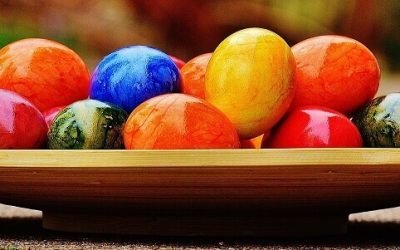What is slatko?
Serbian lifestyle must-know secrets
Why learning about lifestyle really matters when learning a language
Do you know what is slatko? It’s an important part of the Serbian lifestyle and tradition. In this post, I’ll use an anecdote to illustrate why learning about life and customs really matters when learning a language, or even only visiting a country. In the end of the post I’ll also give you my family’s home-made recipe so you can make it yourself and discover what is slatko firsthand.
Have you ever been in a situation where you understood every word, but simply didn’t know how to react or answer to a local in Serbia? That’s why it’s important to learn about how things are done and what is said in specific situations in another country. That’s why Serbian lifestyle is really important for anyone learning the Serbian language.
One of the crucial elements of the Serbian lifestyle is the hospitality ritual. There are many formulas and expected behaviors for guests and hosts in Serbia. For example, in this post you can learn about expected gifts that you can bring as a guest to your Serbian hosts.
But, do you know what to do when your Serbian hosts put something like this in front of you?

This is “slatko”, or “spoon sweet”. It’s a fruit confiture, something like marmalade, but with whole fruits or big chunks of it. It’s a traditional sweet not only in Serbia, but all over the Balkans and Middle East.
The Serbian lifestyle is something that might confuse you, if you don’t understand it. But when you do understand and get used to it, it can make you love the language and the people even more.
What is slatko? An anecdote about an Englishman facing slatko for the first time
There is this cute anecdote about an Englishman eating slatko in Belgrade. It’s funny. But it also illustrates how important it is to learn about culture and customs alongside with the language.
Here’s one of the first videos we’ve ever made. Looking back to it now in 2022, it’s a bit embarrassing. But you might enjoy the anecdote nonetheless.
An Englishman discovers what is slatko – a Serbian lifestyle lesson
There was this very polite Englishman that came to visit Serbia. He knew a little Serbian from his textbook and he could manage a basic conversation, but he knew almost nothing about the Serbian everyday life and customs.
Back then there were no such courses and there was no internet. Only did he know that in Serbia one must eat and drink what’s offered in order not to offend the hosts.
So he rents an apartment from an old lady, and when he visits her to pay the rent, she insists that he comes in na čašicu razgovora, for a small talk. That’s so typical.
Now, being curious, he accepts the invitation and comes in. What happens next is that she puts this (a jar of “slatko” and a teaspoon) on the table in front of him, and goes to the kitchen to make some coffee.
And he takes one mouthful.
Oh my god! This tastes sooo good!
And he takes another mouthful, and another, and he keeps eating…
By the time the old lady’s back from the kitchen with their coffee, he had already eaten like a half of the jar.
Afterwards, he was sick and she was offended.
by Magdalena Petrovic Jelic
Founder of Serbonika
Serbian language teacher and entrepreneur, language lover and polyglot, but also a mother and a relentless storyteller. Read more about me.
My mission is to create the best method for learning Serbian. Would you like to learn Serbian with my lessons? Try free.

Wondering what is slatko? Would you like to try how homemade spoon sweet tastes? It’s really easy to make. Just follow my grandma’s recipe and make the most delicious Serbian traditional spoon sweet yourself!
Here’s the original recipe for slatko in Serbian, and its translation to English.
Grandma’s secret recipe for fig spoon sweet
Ingredients:
2 kilograms (4.4 pounds) of figs
2 kilograms of sugar
0,2 litre of water
1 lemon
Wash the figs and remove the stems, and
then put them on a cloth to dry.
Stab each fig with a fork.
Put all sugar and water in a big pot to
simmer.
When it starts simmering, put the figs in
and cook for an hour.
Stir occasionally.
Cut the lemon in slices and add in the pot.
Remove from the stove and cover with a
wet cloth.
Leave like that overnight.
In the morning pour in clean and dry jars.
Bakin tajni recept za slatko od smokava
Sastojci:
2 kilograma smokava
2 kilograma šećera
2 decilitra vode
1 limun
Oprati smokve i odseći peteljke, pa
staviti na krpu da se osuše.
Svaku smokvu probosti viljuškom.
Staviti šećer i vodu u veliku šerpu da
provri.
Kad šećer provri, ubaciti smokve i
kuvati sat vremena.
Povremeno promešati.
Limun iseći na kriške i dodati u šerpu.
Skloniti sa šporeta i pokriti mokrom
krpom.
Ostaviti tako da prenoći.
Ujutro sipati u čiste i suve tegle.
There, now you know the answer to the question what is slatko.
But do you know precisely what to do if your hosts put this (a jar and a teaspoon) in front of you? Do you want to find out the answer about slatko?
Visit this page and you’ll find out what exactly you should do with slatko, and how to politely say NO and stop overeating without offending anybody.
It’s the little tricks and knowing the Serbian lifestyle secrets that will help you act smart in Serbia, impress your Serbian friends, and sound naturally Serbian!
Serbonika
Najbolja metoda za učenje srpskog jezika
The best method to learn Serbian
The sooner you start learning, the sooner you’ll start talking. Take action now!
Ordering Food in Serbian: Practical Tips to Sound Like a Native
Don’t go to another Serbian restaurant without reading these practical tips about ordering food in Serbian like a native! Avoid “the textbook trap” and stop sounding weird!
Easter in Serbia: Revealing the Diglossic Holiday
Easter in Serbia is a fun experience: cracking eggs and saying special greetings. Are you visiting Serbia for Easter Holidays? Learn how to greet your friends and family like a local!
Sretenje: Serbia’s Statehood day and a Sacred Meeting Day
A Christian holiday, but equally important for our history and folk beliefs. Find out why Sretenje is Serbia’s Statehood day and what it traditionally means.



